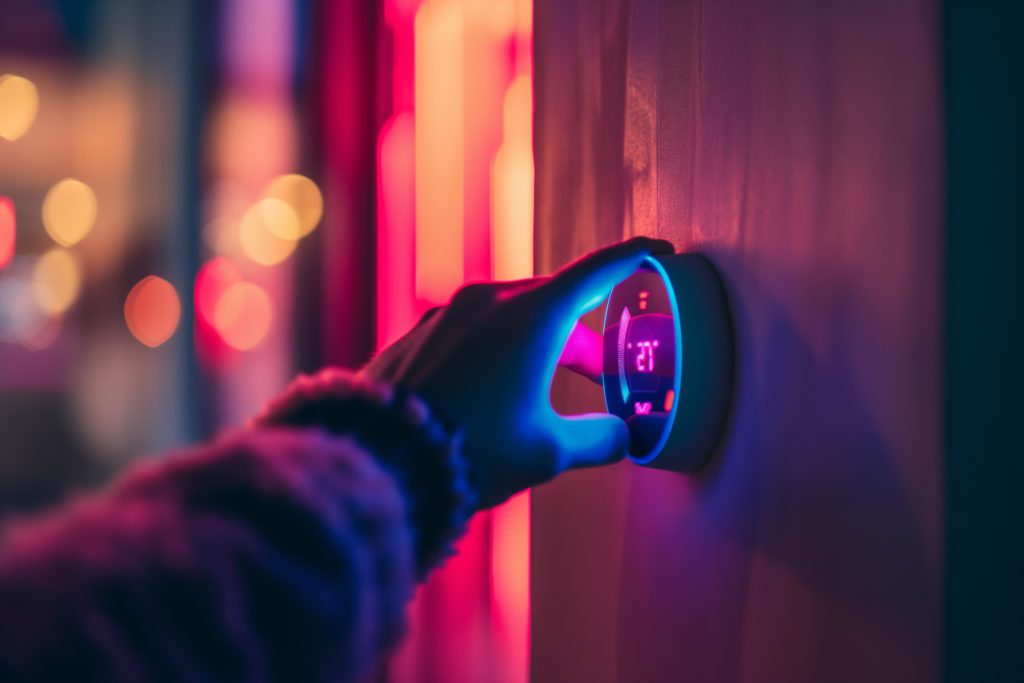
Why Do I Sometimes Wake Up Disoriented, Not Knowing Where I Am?
Waking up feeling confused or disoriented? Explore the surprising reasons behind this common phenomenon and discover practical tips to wake up refreshed!

Have you ever woken up in the middle of the night, blinked a few times, and wondered, "Where am I?" Maybe you've had that brief, panicked moment where your bedroom feels unfamiliar, and it takes a few seconds to realize you're home in bed. This disoriented feeling can be alarming, but it's actually a pretty common experience.
In most cases, waking up disoriented is tied to how our brains transition from sleep to wakefulness. Factors like sleep inertia, being in a deep stage of sleep, or even sleeping in a new environment can cause that brief confusion. But why does this happen? What's going on in our brains when we wake up feeling disoriented?
Let's discuss the reasons behind that groggy confusion and explore the science of sleep that might leave you asking, "why do I wake up disoriented?"
The Basic Science Behind Sleep Inertia
One of the leading culprits behind waking up feeling confused is sleep inertia. Sleep inertia is that sluggish, foggy feeling you get right after waking up.
The concept of sleep inertia is well-studied, with researchers noting that it occurs when the brain is still transitioning from a sleep state to full alertness. During this period, cognitive function is impaired, which explains why you might feel disoriented or groggy.
A study published in the Journal of Sleep Research found that sleep inertia can affect reaction time, memory, and decision-making for up to 30 minutes after waking.
This phenomenon is particularly strong when you wake up during a deep stage of sleep. Our sleep cycles are divided into various stages—light sleep, deep sleep, and REM (rapid eye movement) sleep. If your alarm rudely interrupts your deep sleep or REM stage, your brain struggles to shift gears, leaving you feeling dazed and confused.
The good news? Sleep inertia usually wears off quickly. So, next time you wake up and wonder, "Why do I wake up disoriented?" Just give yourself a few minutes, and you'll be back to normal.
REM Sleep and Disorientation
REM sleep is a stage where most of our vivid dreams occur, and your brain becomes highly active—almost as if you're awake.
When you wake up during REM sleep, your brain may still be in "dream mode," leading to a brief sense of disorientation. This is why, after a vivid dream, you might momentarily feel confused, unsure whether the dream was real or not.
A study published in Frontiers in Systems Neuroscience found that waking up from REM sleep can cause temporary cognitive confusion as the brain tries to reorient itself to reality. Since REM is the closest sleep stage to being awake, waking up during this period can blur the lines between dreamland and real life, leaving you feeling unsure of your surroundings.
This is why you might wake up and, for a few seconds, think you're still in that dream. It's disorienting, but rest assured—it's perfectly normal.
Sleep Environment and External Factors
Your sleep environment plays a big role in how disoriented you feel upon waking.
When you sleep in an unfamiliar place, your brain's natural sense of location is thrown off. Normally, your brain is pretty good at cataloging where you are, even when you're asleep. But when you're somewhere new, like a hotel, it can take a few seconds for your brain to recalibrate.
Moreover, external factors like sudden noises, light changes, or temperature shifts can jolt you awake. These abrupt awakenings don't give your brain enough time to smoothly transition from sleep to wakefulness, increasing that "where am I?" feeling.
Sleep Disorders and Medical Causes
While waking up disoriented is typically harmless, it can occasionally signal an underlying sleep disorder. If you frequently find yourself waking up confused, groggy, or unsure of your surroundings, it might be worth considering whether there's more at play than just sleep inertia or the odd REM cycle.
Parasomnia
One potential culprit is parasomnia, a category of sleep disorders that includes sleepwalking, sleep talking, and night terrors. These conditions cause unusual behaviors during sleep, and it's not uncommon for people to wake up disoriented or confused.
A study published in Neurotherapeutics found that individuals with parasomnias often experience memory gaps or confusion upon waking because their brains are trying to simultaneously process both sleep and wakefulness.
Sleep Apnea
Another common sleep disorder that can lead to waking confusion is sleep apnea. People with sleep apnea experience frequent interruptions in their breathing during sleep, which causes them to wake up abruptly, sometimes dozens of times a night.
These constant interruptions prevent the brain from completing full sleep cycles, which means when you do wake up, you're more likely to feel disoriented.
Narcolepsy
Narcolepsy, a neurological disorder that affects the brain's ability to regulate sleep-wake cycles, is another potential cause. People with narcolepsy may suddenly transition between sleep and wakefulness, leading to intense feelings of confusion or disorientation upon waking.
If you suspect that a sleep disorder might be behind your disorientation, it's a good idea to consult a healthcare provider.
The Impact of Sleep Deprivation
Do you know that being consistently sleep-deprived can also mess with how you wake up? When you don't get enough rest, your brain doesn't have the time it needs to properly cycle through all the sleep stages. As a result, when you do wake up, you're more likely to feel disoriented and confused.
According to the National Sleep Foundation, adults need between 7 and 9 hours of sleep per night to function properly. When you consistently get less than that, your brain is essentially running on fumes. You might find yourself waking up in the middle of a sleep cycle, which throws off the delicate balance between sleep and wakefulness.
The Bottom Line
Sleep inertia, waking up during REM sleep, environmental factors, and even sleep disorders can all play a role in that groggy, disoriented feeling we sometimes experience when we wake up. While it can be unsettling, waking up disoriented is usually harmless and temporary.

Written by
Dr Aqsa
As a Medical Doctor, Dr Aqsa, uses her knowledge to craft complex medical information that is understandable to the general public. For years, she has tried to improve health literacy and empower readers with valuable health knowledge through her articles, blog posts, and educational materials.
Download Pillow
Get help
Press & News
Legal
Connect
X (Twitter)
Company
Copyright © Neybox Digital Ltd.



